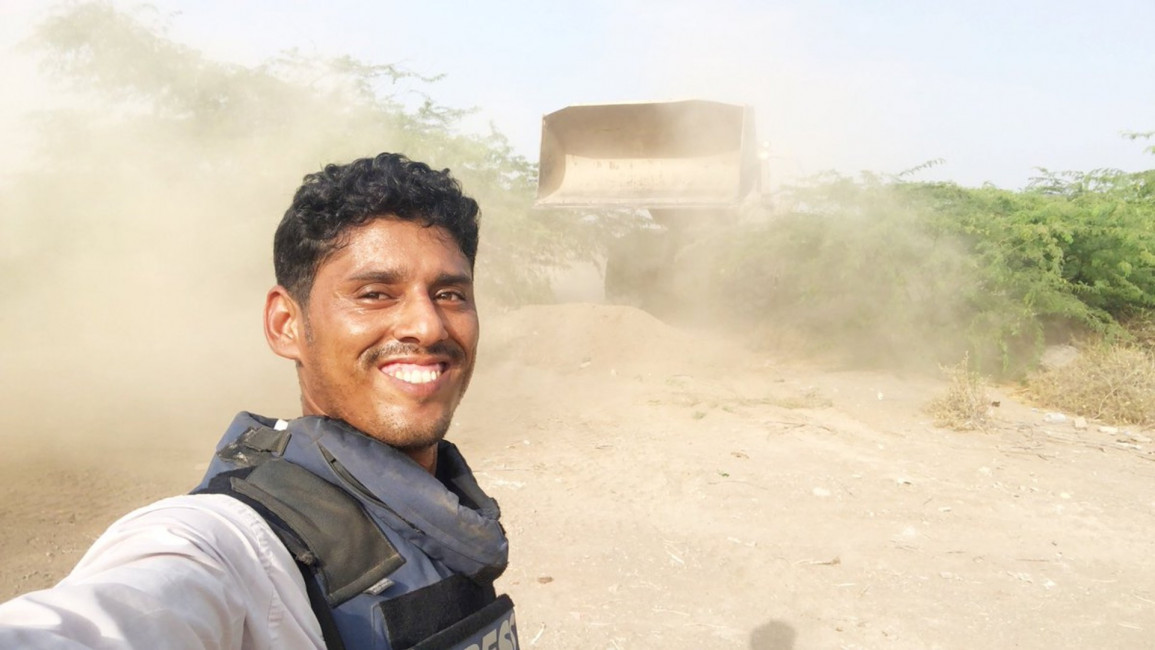Award-winning Yemen journalist Nabil Al-Qaiti assassinated in Aden
Militants opened fire on Al-Qaiti, near his home in the Dar Saad district of Yemen's restive temporary capital, according to witnesses. He died while on the way to hospital.
Al-Qaiti was among the most well-respected photojournalists of the conflict in Yemen, rising to prominence during the battle against the Houthi rebels for Aden in 2015, for which the AFP-accredited photographer was nominated for the Rory Peck news award in London.
Since February 2018, Aden has been under the control of the Southern Transitional Council (STC), an insurgent group fighting the Saudi-backed government for the secession of southern Yemen.
US-based Yemeni scholar Fatima Alasrar called Al-Qaiti's murder "absolutely shocking", calling Al-Qaiti a "fierce well-known reporter from #Yemen's South".
Alasrar added that al-Qaiti was known to be pro-secession and a supporter of the STC.
Twitter Post
|
Tributes poured in for Al-Qaiti across social media.
Sahar Noman, a journalist with Yemen's Aden TV, said on Twitter that Al-Qaiti was "one of the most prominent photographers of the war in Yemen", and "known for his bravery & high [standard] of photography".
Abdy Yeganeh, the director of conflict mediation group Independent Diplomat, called the news "deeply shocking".
"Nabeel was always at the forefront of giving Southerners directly from the ground a platform to be heard. It's a sad and stark reminder that attacks against the press is a global issue that needs urgent attention," he tweeted.
Yemen's conflict has seen grave violations against journalists from all sides, ranking 167th out of 180 countries in the 2020 Global Press Freedom Index.
Last week, STC forces released a young journalist named Aseel Suwaid, who had been detained for a month without reason, and showed clear signs of torture.
The UAE-backed STC declared self-rule in the south on 26 April and declared it would stop cooperation with the Yemeni government, despite the risk that the split will renew conflict with the Houthi rebels in the north.
The declaration came six months after the two sides signed a Saudi-brokered power-sharing agreement aimed at ending the ongoing conflict between them and unifying them against Houthi rebels.
However, Yemen's south remains fractious and tense, with several provinces - Shabwa, Hadramawt and Socotra - rejecting the STC’s self-rule declaration.
Follow us on Facebook, Twitter and Instagram to stay connected



